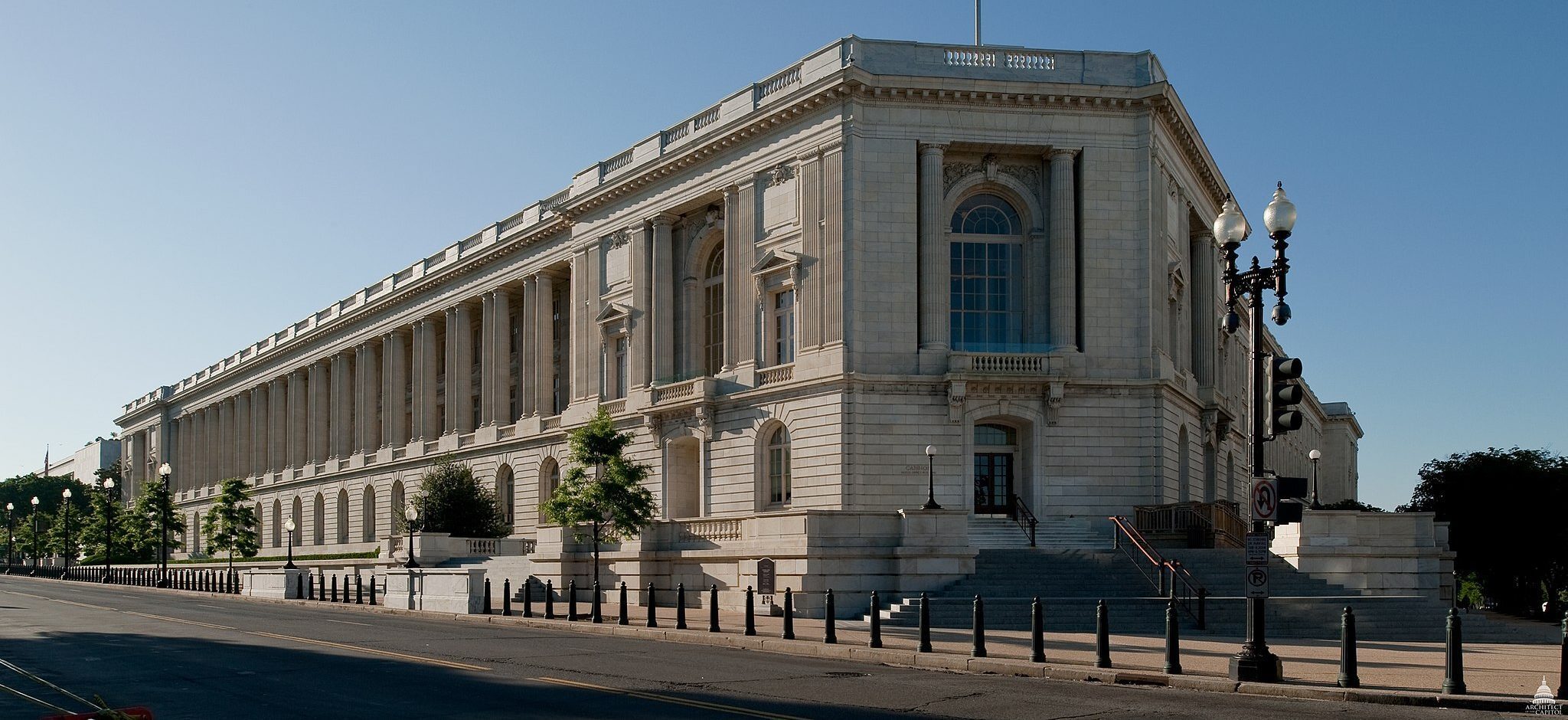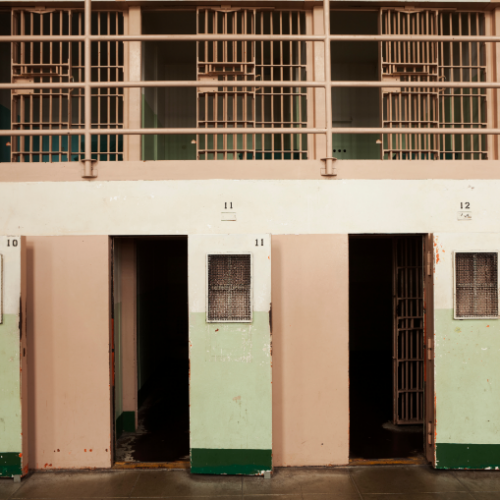
House Democrats passed a $3 trillion relief package on Friday that features a number of items related to criminal justice, including more than $1 billion in additional spending to address coronavirus outbreaks in prisons and sweeping changes for how incarcerated people are managed during the pandemic.
The bill also would make it easier for small business owners with low-level criminal records to obtain emergency federal loans, would inject $250 million into the Second Chance Act grant program to help with reentry efforts, and proposes $300 million for local and state law enforcement responses to the coronavirus.
Despite the approval, the bill will likely face significant challenges when it reaches the Republican-led Senate.
“Although the package has little chance of passage in the Senate, it does serve as a marker for House Democrats’ legislative priorities heading into any future discussions with Republicans and the White House on another COVID-19 relief package,” said Jamal Nelson, director of Government Affairs at The Council of State Governments Justice Center.
Here’s a quick breakdown, by category, of key supplemental appropriations and authorizations included in the proposal:
Reentry
Small Business Administration (SBA): Addresses restrictions against people with criminal records applying for the Paycheck Protection Program. The measure clarifies that any application for a loan or guarantee under that program shall include a statement that an applicant is not ineligible for assistance solely because of their involvement in the criminal justice system. It also requires the SBA administrator to carry out this amendment within 15 days.
Second Chance Act: $250 million for grants to help facilitate the reintegration of people leaving prison or jail and prevent recidivism.
Emergency Community Supervision Act: Mandates the release to community supervision of people under federal correctional supervision and detained at the pretrial stage who are at low risk of reoffending, defined as those who
- Do not pose a risk of serious, imminent injury to a reasonably identifiable person; or
- Are 50 years of age or older, suffer from a serious chronic medical condition, suffer from a neurological disease that interferes with their ability to cough or breathe, are pregnant, are immunocompromised or have a weakened immune system, or have a health condition or disability that makes that makes them vulnerable to COVID–19.
The Act also
- Modifies probation and supervised release policies to avoid unnecessary in-person contact with probation officers and reduce the numbers of people supervised and imprisoned for violations;
- Mandates the release of pretrial defendants charged with nonviolent offenses on their own recognizance;
- Authorizes states and units of local government to award funds to test and initiate COVID-19 treatment for people who have been arrested, detained, or incarcerated;
- Calls for states and local governments to adopt reentry programs that facilitate the long-term reduction in the number of people arrested, detained, and incarcerated;
- Requires re-sentencing of lower-level and technical violations of supervised release and prohibits mandatory revocation for positive drug tests.
Reentry Employment Opportunities: Authorizes that funds under this bill be used to support employment-related opportunities for youth, young adults, and adults in the criminal justice system during and following the COVID-19 pandemic. Such opportunities include subsidized employment and transitional jobs. The measure also requires that one-fourth of funds be used for grants to national and regional intermediaries.
Corrections
Court Authority to Reduce Sentences and Temporary Release Authority: During the COVID-19 emergency, this expands court authority to order compassionate release for people in federal prisons, reduce sentences, and remove administrative barriers. Also authorizes courts to temporarily release people who have been sentenced but have not yet been transported to a U.S. Bureau of Prisons facility in order to protect them from COVID-19.
Increasing Availability of Home Detention for Elderly People: Increases the availability of home detention for older adults in prison. Also lowers the eligibility age to 50 and requires only half of the sentence to be served (eligibility currently requires 60 years of age and two-thirds sentence completion).
Effective Assistance of Counsel in the Digital Era Act: Directs the Attorney General to establish an electronic communication system to be used by people in federal custody that ensures confidential communication between those in custody and their attorneys.
Exemption for People in Prison from Exhausting Administrative Remedies: Exempts people from having to exhaust administrative remedies before seeking judicial redress about conditions of incarceration that present a significant risk of harm during the COVID-19 emergency.
COVID-19 Correctional Facility Emergency Response Act: Authorizes $600 million to address the COVID-19 crisis in state and local prisons and jails, which includes
- $500 million to states and local governments to provide testing and treatment of COVID-19 for incarcerated people by creating two grant programs—one focused on the release of people deemed “low-risk” (over 50, pregnant, juvenile, immunocompromised or suffering from a serious chronic medical condition) and another aimed at reducing COVID-19 exposure for people who are arrested;
- $75 million in funding to a new grant program for states and localities to adopt practices that promote juvenile safety and rehabilitation without unnecessarily exposing youth to incarceration; and
- $25 million in grants for state and local governments operating correctional facilities to conduct rapid testing of people leaving correctional custody.
Medicaid for Incarcerated Population Prior to Release: Provides Medicaid eligibility to incarcerated people 30 days prior to their release.
Byrne Justice Assistance Grants: $300 million to help prevent, prepare for, and respond to the coronavirus, including for purchasing personal protective equipment and controlling outbreaks at prisons, with waivers of the local match and non-supplanting requirements. Public defender funding is also an authorized use of Byrne Justice Assistance grants. The bill additionally prevents the U.S. Department of Justice from blocking these funds for sanctuary jurisdictions.
Victims of Crime
Office of Violence Against Women: The bill allocates $100 million for the following purposes:
- $30 million for grants to combat violence against women
- $15 million for transitional housing assistance grants for victims of domestic violence, dating violence, stalking, or sexual assault
- $15 million for sexual assault victims assistance
- $10 million for rural domestic violence and child abuse enforcement assistance grants
- $10 million for legal assistance for victims
- $4 million for grants to assist tribal governments in exercising special domestic violence criminal jurisdiction
- $16 million for grants to support families in the justice system
Victims of Crime Act Fix Act of 2020: Directs funding from deferred prosecution agreements and non-prosecution agreements to be deposited into the Crime Victims Fund. The measure also waives state matching requirements during the COVID-19 pandemic for one year.
Behavioral Health
Substance Abuse and Mental Health Services: $3 billion to Health Surveillance and Program Support to prevent, prepare for, and respond to the coronavirus. That funding would include $1.5 billion for the Substance Abuse Prevention and Treatment Block Grant program.
Emergency Mental Health and Substance Use Training and Technical Assistance Center: Establishes a technical assistance center at the Substance Abuse and Mental Health Services Administration that, with an authorization of $20 million, would support
- Public or nonprofit entities seeking to establish or expand access to mental health and substance use prevention, treatment, and recovery support services, and increase awareness of such services; and
- Public health professionals, health care professionals and support staff, and essential workers seeking to establish or expand access to mental health and substance use services associated with the COVID-19 public health emergency.
Law Enforcement
Community-Oriented Policing Services: $300 million for law enforcement hiring grants and for the purchase of personal protective equipment, with waivers of the local match and non-supplanting requirements.
State and Local Law Enforcement Assistance: $300 million for the coronavirus response, including the purchase of personal protective equipment and costs related to preventing and controlling the coronavirus at correctional institutions.
Courts
Moratorium on Fees and Fines: The bill authorizes the establishment of a grant program that distributes funds directly to state and local courts, with the condition that they impose a moratorium on the imposition and collection of court-imposed fees and fines during the COVID-19 crisis.
Federal Administration Funding
U.S. Department of Justice: $200 million to prevent, prepare for, and respond to the coronavirus, including funding for medical testing and services, personal protective equipment, hygiene supplies and services, and sanitation services.
Office of Inspector General: $3 million to prevent, prepare for, and respond to the coronavirus, including funding to carry out investigations and audits related to the funding made available for the Department of Justice.
U.S. Bureau of Prisons: $200 million to prevent, prepare for, and respond to the coronavirus in federal prisons, including funding for medical testing and services, personal protective equipment, hygiene supplies and services, and sanitation services.
A positive school experience, where a child feels secure, is essential for their well-being. However, for many children…
Read More The Path to Statewide Community Crisis Response in New Jersey: A Community Advocate’s Perspective
Read More
The Path to Statewide Community Crisis Response in New Jersey: A Community Advocate’s Perspective
Read More
 Supporting Children of Incarcerated Parents: Reimagining School and Community Collaboration
Supporting Children of Incarcerated Parents: Reimagining School and Community Collaboration
A positive school experience, where a child feels secure, is essential for…
Read More Bridging Communities and Correctional Systems: Q&A with CSG Justice Center Advisory Board Member Commissioner Nicholas Deml
Read More
Bridging Communities and Correctional Systems: Q&A with CSG Justice Center Advisory Board Member Commissioner Nicholas Deml
Read More
 Assigned to the Cloud Crew: The National Incarceration Association’s Hybrid Case Management for People with Behavioral Health Needs
Assigned to the Cloud Crew: The National Incarceration Association’s Hybrid Case Management for People with Behavioral Health Needs
When returning to their communities from criminal justice settings, people with behavioral…
Read More Meet the Medicaid and Corrections Policy Academy Mentor States
Meet the Medicaid and Corrections Policy Academy Mentor States
New Hampshire Department of Corrections Commissioner Helen Hanks presents at the Medicaid…
Read More










